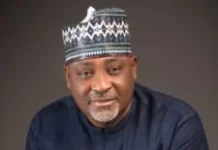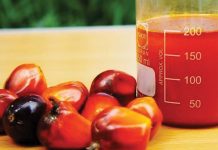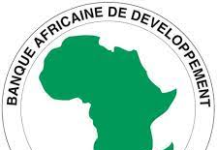- 55,000 tractors decrepit nationwide’
The Nigeria Incentive-Based Risk Sharing System for Agricultural Lending (NIRSAL) Plc, along with its technical partner on agricultural mechanisation-Machines and Equipment Corporation Africa (MECA), yesterday signed an agreement with the World Bank’s FADAMA III-AF programme for the management of its agricultural infrastructure.
In effect, the FADAMA III-AF has now entrusted its agricultural infrastructure, including mechanisation equipment, irrigation systems, and storage facilities in care of NIRSAL and MECA, going by their joint mechanisation programme, referred to as the NIRSAL Comprehensive Agricultural Mechanization Program (NCAMP).
Speaking at the signing ceremony, Managing Director/Chief Executive, NIRSAL, Mr. Aliyu Abdulhameed said the collaboration project will boost access to tractor and land clearing services at affordable rates for smallholder farmers as well as guarantee food security for the country.
He said the initiative will also help conserved foreign exchange as hundreds of the moribund and serviceable contractors spread across the country will be refurbished and out to use instead of acquiring new ones.
Essentially, NCAMP presents a holistic mechanisation initiative designed to address the low agricultural mechanisation rate as a critical intervention for the achievement of food security, job creation and economic diversification of the country.
The partnership is part of initiatives targeted at achieving sustainability and continuity of FADAMA III projects and infrastructure as the World Bank project approaches its official closing date of December 2019.
Abdulhameed, however, commended FADAMA’s recognition of NIRSAL as a trustworthy and capable partner that would continue with the developmental activities which the former had undertaken in the country.
He said: “As FADAMA has done, so too will NIRSAL continue to support the growth and expansion of the agricultural value chain as its mandate requires. At NIRSAL, we recognise that when it comes to agriculture, there is an opportunity to positively impact millions of livelihoods. What you have witnessed here today is another example of how we are utilising these opportunities to better the lives of smallholder farmers across the nation.”
He further told THISDAY: “What we have tried to do is to separate mechanisation equipment ownership from mechanisation users. You cannot expect smallholders farmers to own N15 million equipment as an individual asset and they do one or two hectares and pack those equipment to their homes.
“What we have tired to do is to separate usage from service provision and that is what we christened in NIRSAL as mechanisation as a service. And therefore, farmers pay as you go.”
He said: “Today, what you notice between MECA and Fadama is exactly that model in action. With this now, more equipment manufacturers will seize the opportunity and step in.
“NIRSAL is guaranteeing up to 75 per cent of the front end value of every Investment or financing under the scheme, then for any successful outing where financing is done, equipment works, and repayment has happened, we are ready to support with interest drawback as well.”
The National Project Coordinator of Fadama III AF, Mr. Taiwo Adewunmi said the 19 Agricultural Equipment Hiring Enterprises (AEHE) centers had been established in 14 states of the federation and equipped with 56 tractors under the Agriculture Promotion Policy (Green Alternative).
Among other things, he said the centers had been able to mobilise, organised, registered and supported over 263,795 farmers in 3, 675 production clusters which is made up of 25,610 production groups.
He seized the opportunity to allay the fears expressed by members of the Federated Fadama Community Association (FFCA) that the latest initiative by NIRSAL would take over the AEHE assets which they presently manage.
Nonetheless, Group Country Director of MECA, Mr. Illiya Gashinbaki said the initiative will save the country from losses arising from equipment purchases.
According to him: “Nigeria is losing billions in the fact that assets or mechanical assets are not well utilised and maintained. It is something that is inherent in our country.
“We have well over 55,000 broken down, serviceable tractors all over Nigeria and another 130,000 that we are going to recycle.
“If you are to get 55,000 tractors today, just to give you a sense of the quantum of loss, you will spend not less than N660 billion.
“Now, under this project, the first phase of this programme is 10,000 tractors to be refurbished. We have done the pilot and we have successfully refurbished about 50 tractors and now we are going to scale it up in phase one which is 10,000 tractors.
“Now, that 10,000 tractors under the approved framework is going to cost us just N30 billion, now compare that with the quantum that we are losing because these tractors are idle and not working.
“The second advantage is that automatically, it increases food production because currently we have about 10 per cent animal labour and 89 per cent human labour. So there is no way as a country that we will be able to address this without solving the problem of mechanisation.
“The programme seeks to increase the income of farmers by providing affordable access to mechanisation services which before Now does not exist.”
Source: THISDAY













